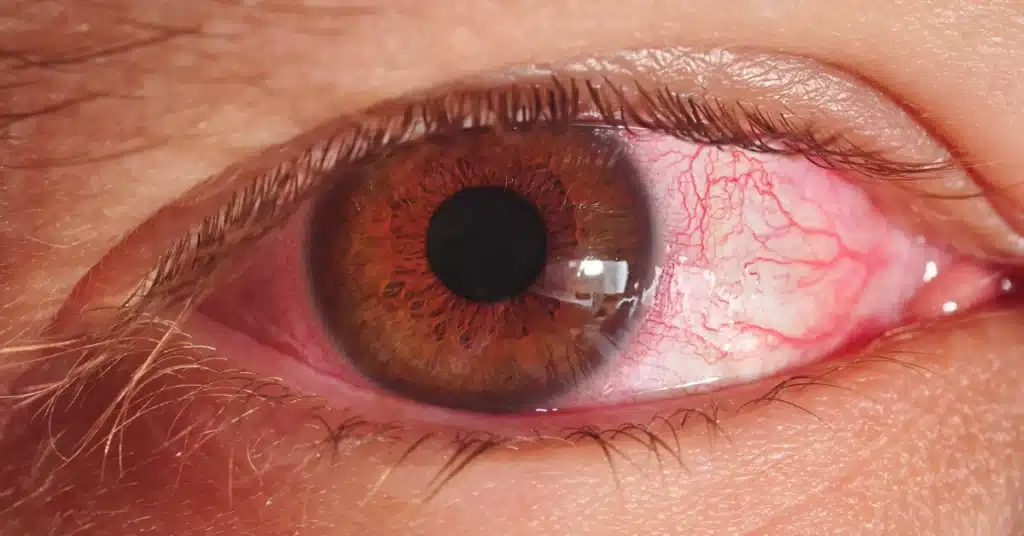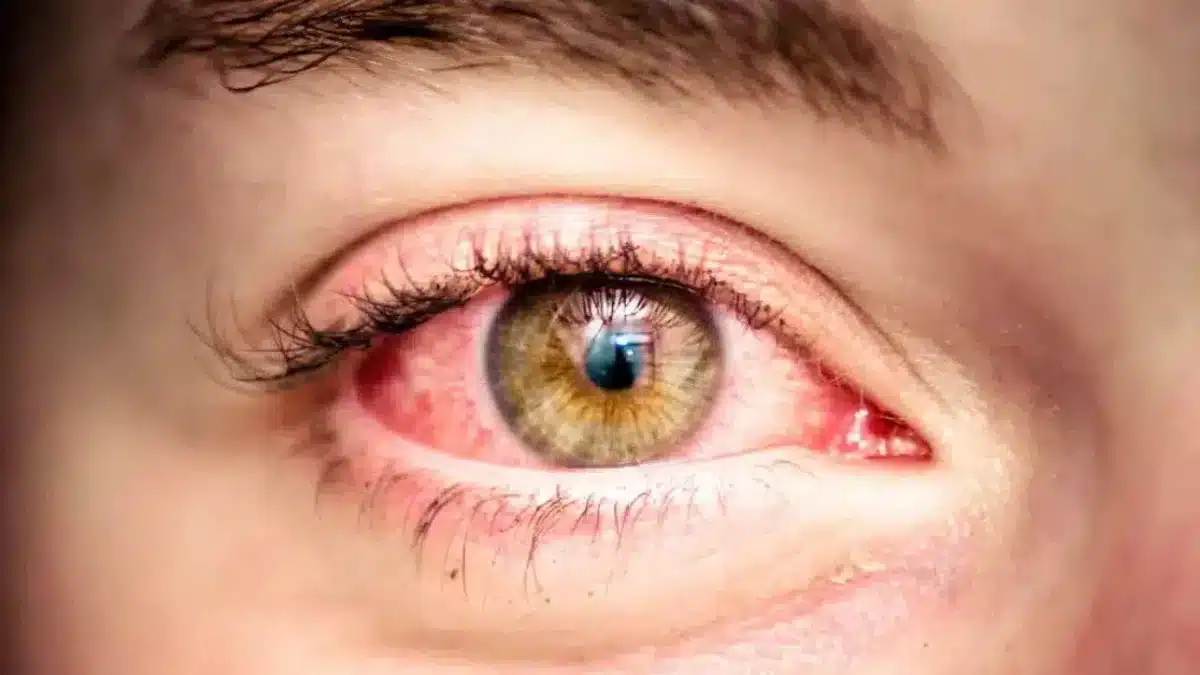Many of us have encountered eye floaters or thin lines floating in our range of vision.
Eye floaters are small, drifting specks or cobweb-like shapes in vision caused by age-related changes in eyes.
Usually, eye floaters are not harmful; however, understanding the cause of these eye floaters may help with treatment.
This article will discuss what causes eye floaters, whether they are normal, and the associated risk factors.
Understanding eye floaters
Eye floaters are little, shadowy forms that appear to move around in your field of vision and then float away when you gaze directly at them.
They might be specks, spots, lines, or web-like formations.
These floaters can be more visible while looking at a bright, plain background, such as a clear blue sky.
Underlying medical conditions such as Uveitis can lead to the development of eye floaters.
Usually, floaters are not dangerous; however, if you notice a sudden increase in floaters, you should seek medical help.
Are eye floaters normal
Yes, occasional eye floaters are normal and often result from age-related changes in the vitreous humor.
The fluid within your eyes, known as vitreous humor, decreases with aging.
This is natural and does not indicate that your eyes are unhealthy.
However, persistent or chronic eye floaters are usually cause for alarm.
If you suddenly start seeing flashes of light and floaters, you should see an eye doctor to avoid potential risks.
Explore natural remedies to minimize eye floaters, Read A Complete Guide on How to Reduce Floaters in Eyes Naturally for effective strategies.
What causes eye floaters
 Source: dtimiraos_from_Getty_Images
Source: dtimiraos_from_Getty_ImagesSeveral underlying factors can lead to the occurrence of eye floaters.
The vitreous body of the eye naturally causes eye floaters.
When the vitreous body decreases, little strands break off and become stringy.
This separation generates vitreous lumps, which may prevent light from accessing the retina.
This sends a tiny shadow into the eye, allowing eye floaters to be noticed.
As you age, changes in the vitreous, the gel-like substance in your eye, can form eye floaters.
According to the American Society of Retina Specialists (ASRS), eye floaters are more common in individuals over 60.
In some individuals, Diabetic Retinopathy or retinal tears can cause eye floaters which may lead to vision loss.
Early diagnoses and proper treatment for eye floaters is essential to avoid potential risks and side effects.
Are you experiencing eye floaters after cataract surgery? Read our article on “Eye Floaters and Cataract Surgery” for informed and proactive eye care.
Risk factors associated with eye floaters
Several factors may increase the possibility of experiencing eye floaters.
Typically, these factors include aging, eye infections, and underlying medical conditions such as Uveitis.
Some of the risk factors associated with eye floaters are:
- Uveitis
- Old age
- Eye infection
- Diabetic retinopathy
- Eye inflammation
- Migraine headache
- Eye injury
If you are at risk of getting eye floaters, it is critical to have regular eye exams.
Take control of your eye health! Read “Eye Floater Treatment” to discover the best ways to address eye floaters.
Summing up
Eye floaters are small, thin lines that appear to drift in your vision.
Understanding what causes eye floaters is essential for proper treatment and effective management.
Eye floaters are normal if they occur occasionally, but persistent or sudden increases may indicate underlying medical conditions.
Changes in the vitreous humor is the primary cause of eye floaters.
Aging, Diabetic Retinopathy, and medical conditions such as Uveitis are also associated with the development of eye floaters.
Consulting a doctor is essential if eye floaters are bothering you and affecting your vision.
Frequently Asked Questions
Can stress cause eye floaters?
While stress doesn’t directly cause eye floaters, stress and anxiety may contribute to heightened awareness of floaters.
Additionally, stress can worsen existing visual disturbances. It’s advisable to consult with a doctor for persistent concerns.
Can eye floaters cause blindness?
No, eye floaters do not usually cause blindness.
Suppose you have floaters as a result of an underlying retinal condition. In that case, it can lead to vision loss if the underlying retinal condition is not treated.
When should I worry about eye floaters?
Although eye floaters are normally harmless, you should be concerned if you see an increase in the frequency of floaters with flashing lights or a shadow over your vision.
These symptoms may suggest a retinal problem that requires immediate medical attention.
Can lack of sleep cause eye floaters?
No, sleep deprivation does not cause eye floaters.
Inadequate sleep, on the other hand, can cause eye strain and weariness, temporarily increasing the prevalence of existing floaters.
Are eye floaters dangerous?
No, usually, eye floaters are harmless. However, suppose a severe retinal problem causes these eye floaters.
In that case, they might be dangerous to your eyes and vision.
As a result, if you start suffering from eye floaters, you should get medical counsel from an eye doctor.
When referencing outside resources, GoodrxMedicine always provides full citations. To learn more about the measures we use to maintain the quality of our content, please review our Content Information Policy.











